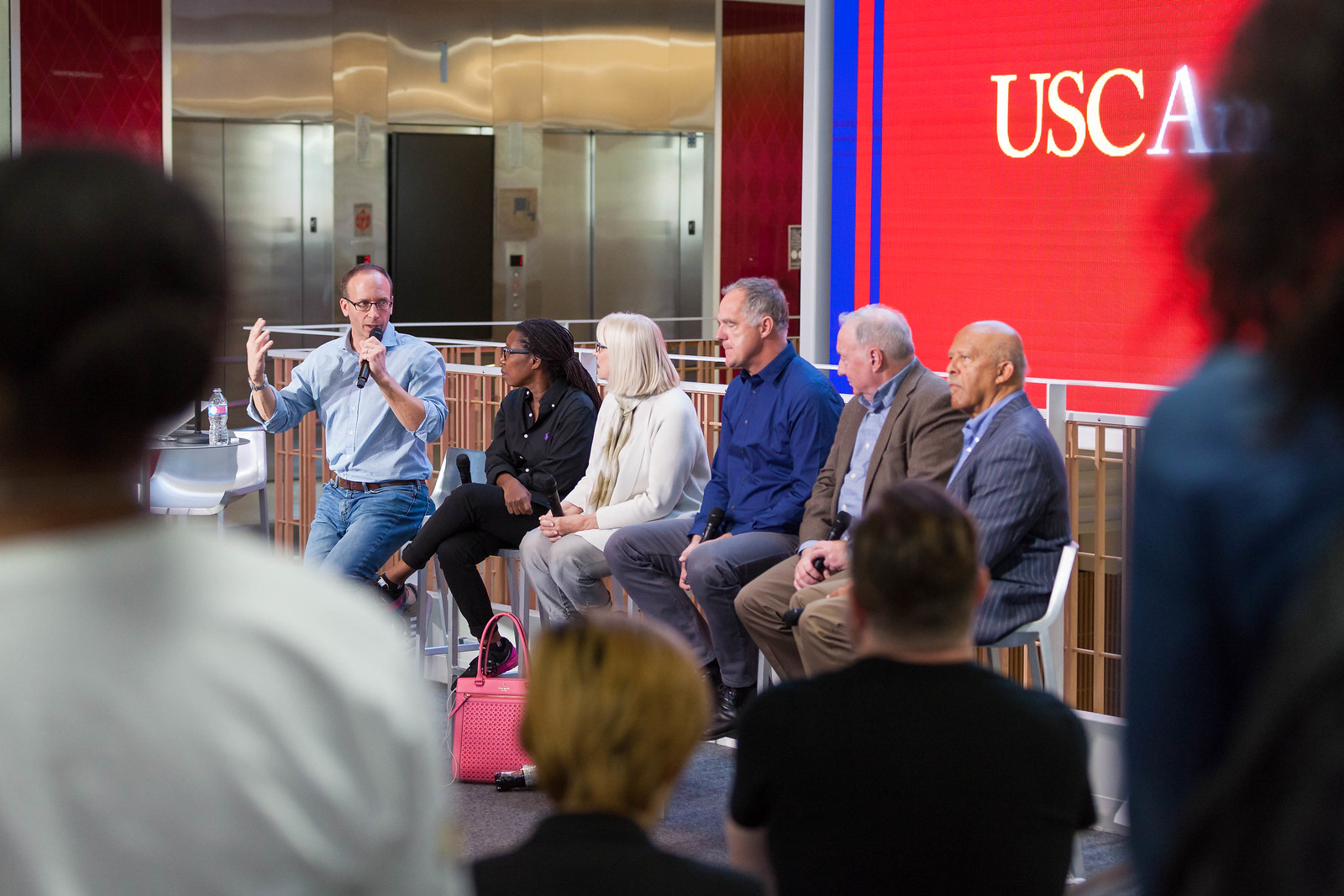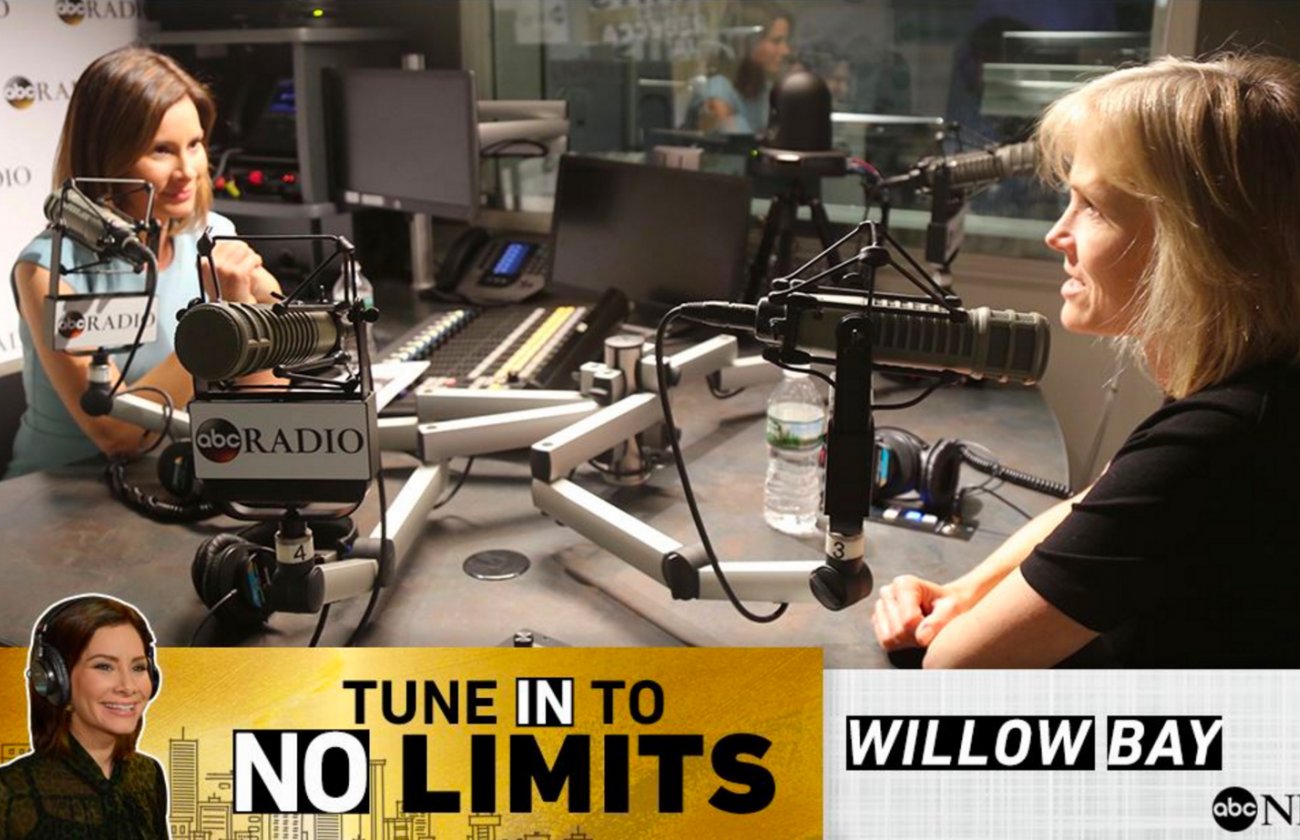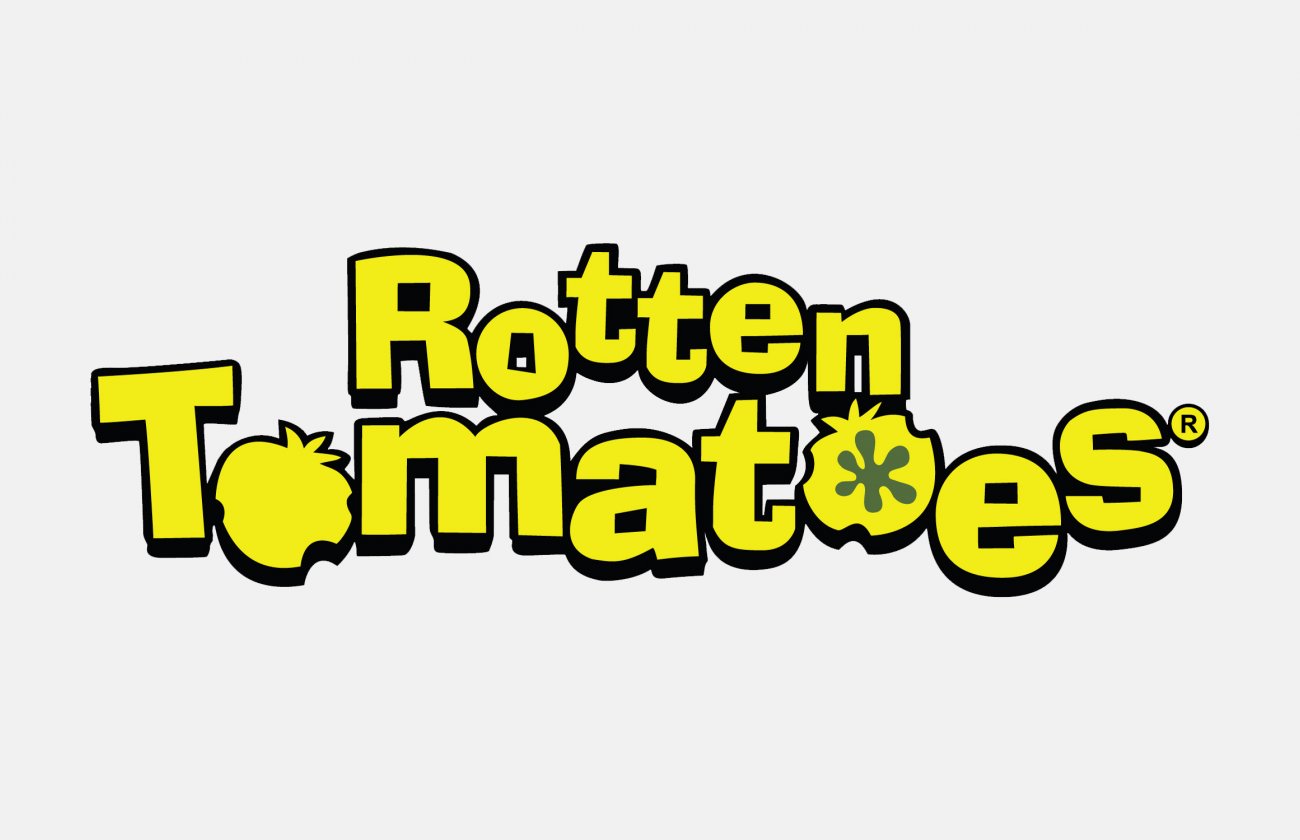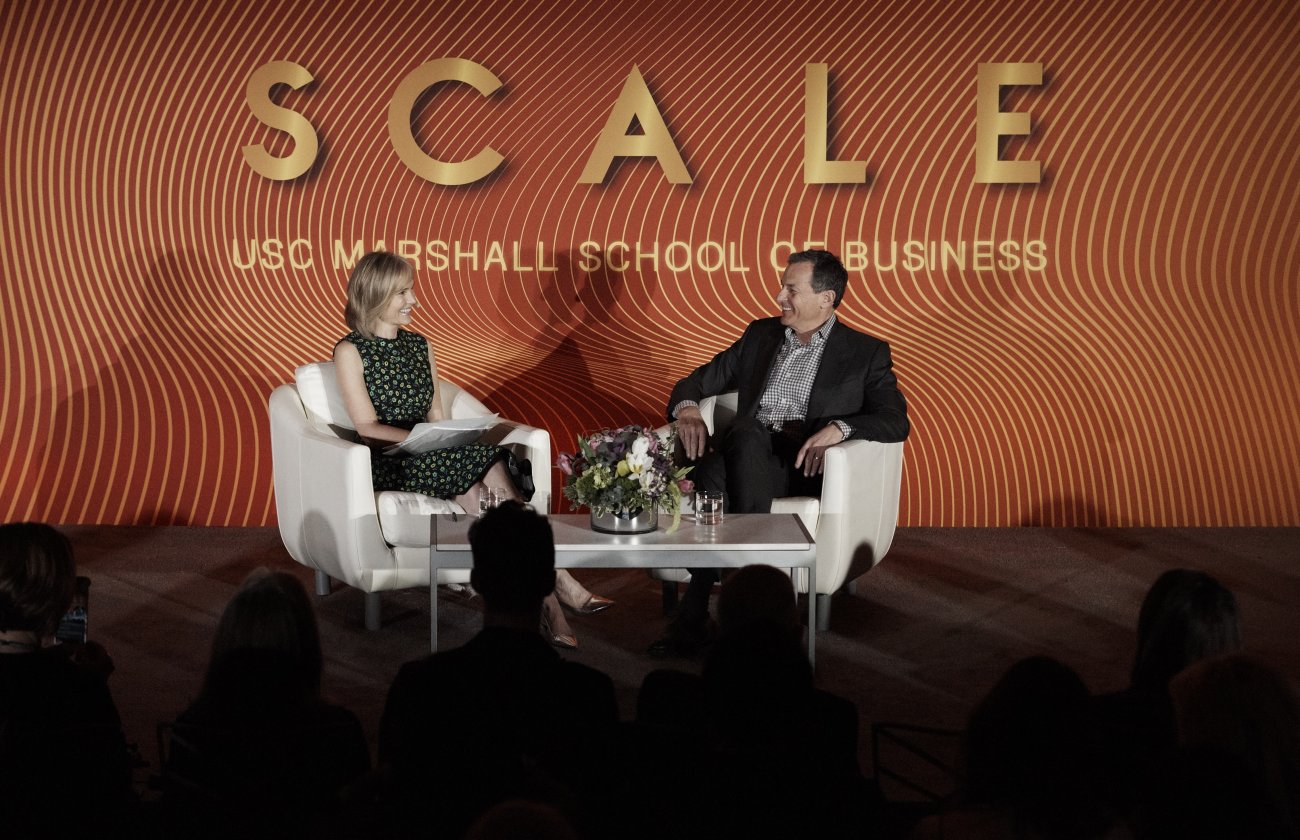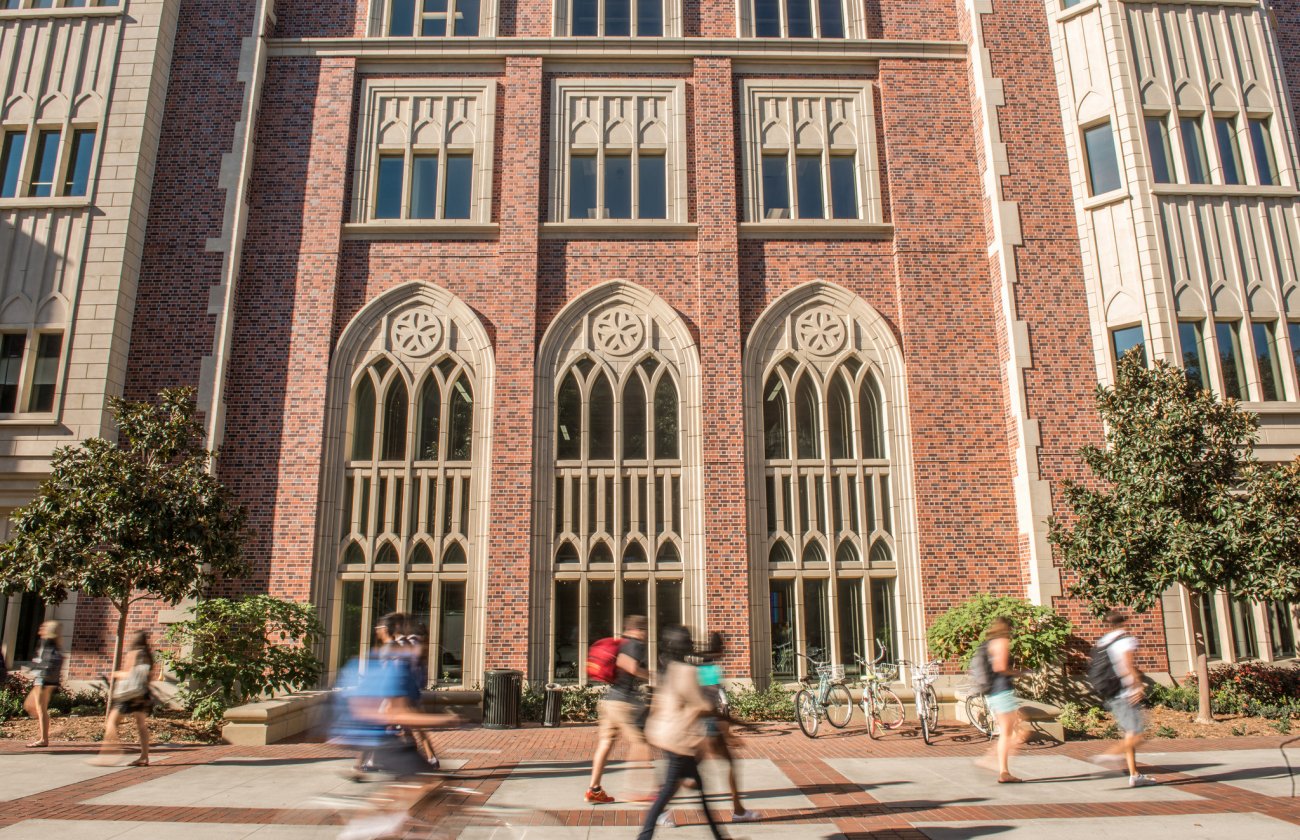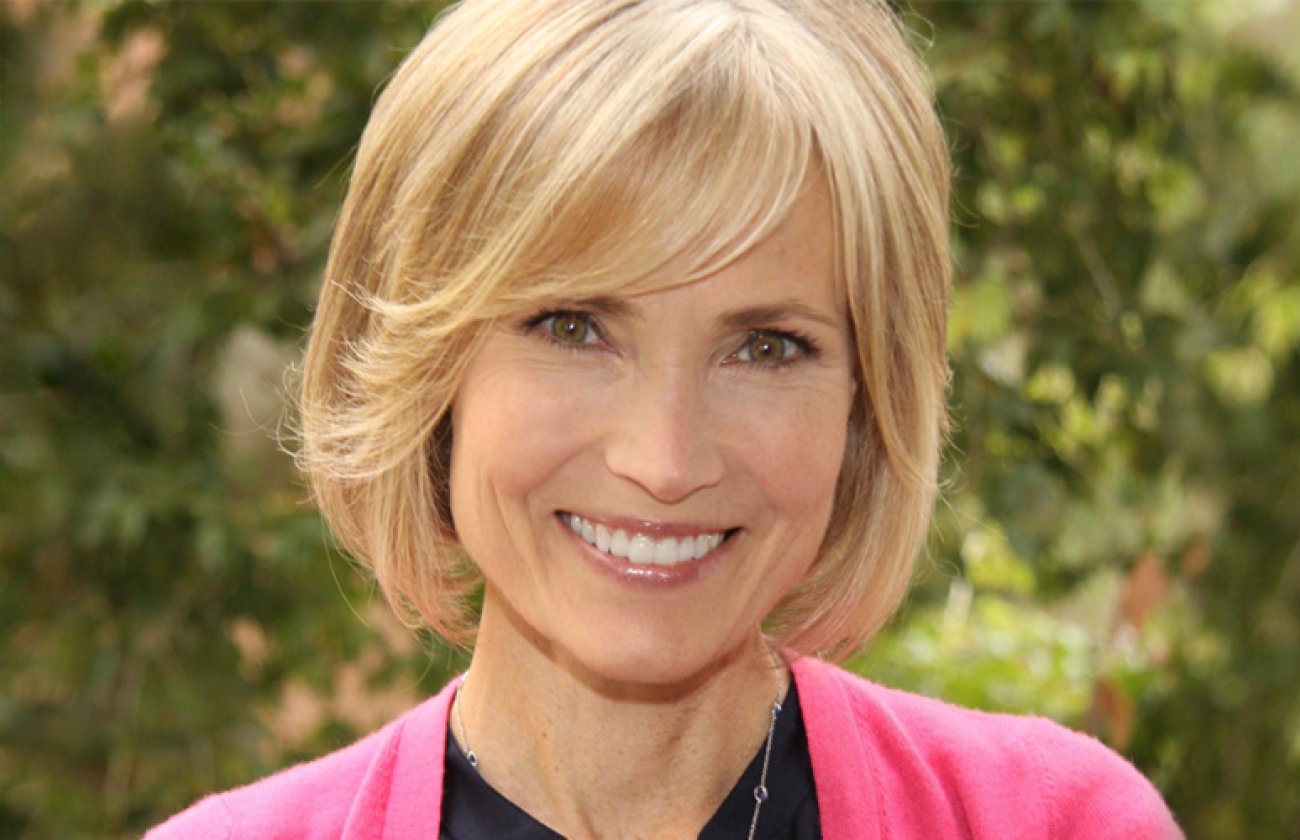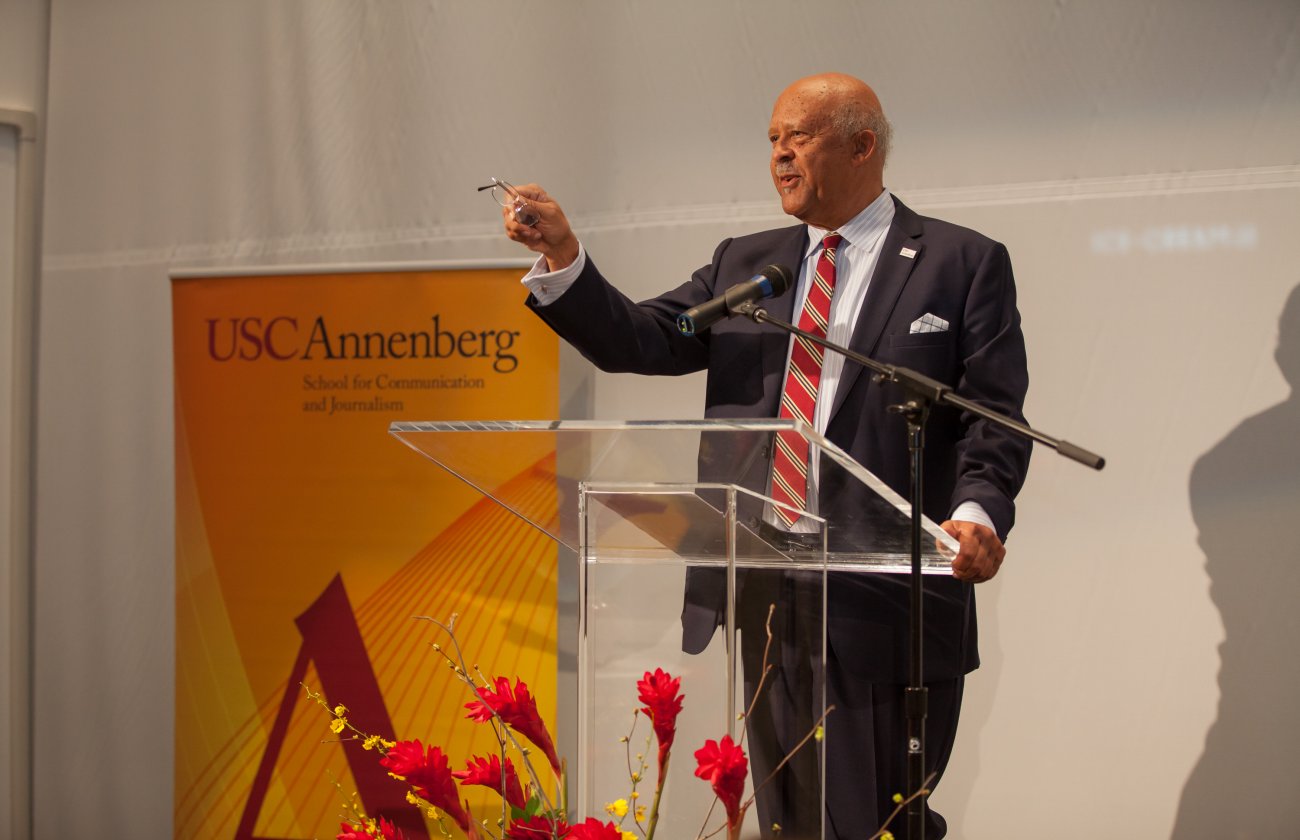USC Annenberg students, faculty and staff woke on Wednesday morning to one of the most historic and surprising outcomes to a presidential election in memory, with Republican nominee Donald Trump winning against Democrat Hillary Clinton for the highest office in the land.
On a startlingly close election night, Trump beat Clinton by 51 electoral votes. Republicans also held onto the Senate with 51 seats.
On November 9, School of Journalism Director Willow Bay moderated a discussion of the event--titled “The 2016 Presidential Election: Where do we go from here?”--in a packed Wallis Annenberg Hall lobby with Dean Ernest J. Wilson III, professors Gabriel Kahn, Philip Seib, Jonathan Taplin, Judy Muller, Burghardt Tenderich, senior lecturer Mary Murphy, lecturer Miki Turner and School of Communication Director Sarah Banet-Weiser. The group discussed the significance of communication and journalism schools moving forward, race relations and the importance of media literacy.
Kahn, professor of professional practice of journalism and former Wall Street Journal Los Angeles bureau chief, on whether the media matters anymore:

The fact that a Presidential candidate had three or four newspaper endorsements including one from the KKK paper... So many of the pollsters blew this one and the media was predicting a completely different outcome. So is media relevant anymore? Legacy institutions, whether it’s the Republican and Democratic parties or large media organizations, are all really challenged at this moment, challenged for their relevance and the way they resonate.
There was a tremendous amount of media consumed in this campaign. The way the industry has shifted has, in my view, somewhat led to the kind of result we have today. When you have a social platform like Facebook, whose business model depends on maintaining interactions with the user and essentially reaffirms everything the user wants to have reaffirmed, the traditional role of the media to report facts is really diminished.”
Turner, lecturer in journalism, on addressing the climate when it comes to race relations:
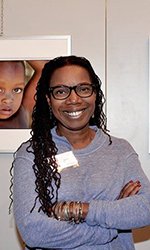
Muller, professor of journalism, on the importance of journalism schools:
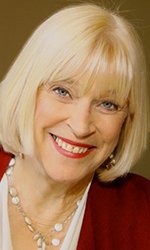
On the flip side of that, for the people who aren’t journalism majors, we are teaching media and news literacy. It's never been more important because people seem to have lost their critical thinking skills. They are reading fake news sites, which are really abundant on Facebook and social media. We have to learn how to see what those are and not buy into them. If we teach this here in the university--and I would like to see every freshman required to take the course--we are making a smarter audience at the same time we are making a tougher journalist.”
Tenderich, professor of professional practice and associate director of the USC Center for Public Relations, on frustrations and analysis of what happened:
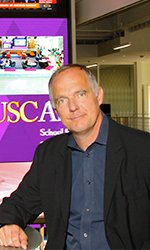
Seib, professor in journalism and communication, on what the news media should be doing moving forward:
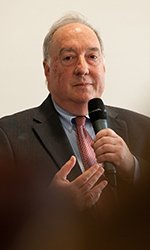
Another thing the news media need to do is cover America in the world. This was an 'America First' campaign. It was an isolationist campaign on the part of Trump. I would argue that’s unrealistic in terms of a globalized world these days, in terms of economy, defense issues and climate issues. That has not sunk in with the public. In the interim between the Cold War and today, the news media, both institutionally and in terms of the substance of their coverage, have not kept up. As Judy said, we have to be very forward looking in all of this.
As the United States plays a role in the decades to come, that's going to take some solid, explanatory journalism about the nature of the world. What is America? What is it that drives things forward? As Miki mentioned, racism didn’t suddenly emerge two weeks ago and drive the Trump campaign. There is a reluctance on the part of the news media to grapple with just what the American character is and to lead the public to reflect on that character. What should we be thinking about ourselves and how should we be defining ourselves? What should we be aspiring to? News coverage can’t dictate that but it can stimulate thinking about that. I think the news media has done a fairly poor job in terms of the intellectual aspiration to try to define what we are.”
Dean Wilson on asking ourselves what did we miss in the election?
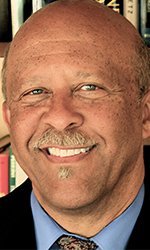
Secondly, to echo what Phil said, we operate in a global economy in terms of trade and national security. I was reading The New York Times today and there was an article there that said foreign leaders supported Trump’s opponent on a 10 to one basis. What that suggests is that all of us should pay pretty close attention to the diplomacy language the new administration uses to try to address that deficit.
What does this mean for the Annenberg School? As a Dean of the School, I would welcome all of you to think about that. I hope this won’t be the last discussion that we have on this issue, but I think existentially we have got to ask what can we do as teachers and students and citizens so that we have a better understanding moving forward. Shouldn't that be engraved into the heart, into the DNA of the Annenberg School? I think we do a pretty good job, we do a very good job, but we have got to do better. Everyone has got to do better.
Final point: mea culpa, mea culpa. I did work on one of the campaigns. I learned a hell of a lot and I was particularly shocked this morning. I would urge each and every one of you to work on a campaign, a campaign for school board, a congressional campaign, a presidential or gubernatorial campaign because that’s one way you really learn how these things operate on the ground, who gets involved, who has authority, who doesn’t.”
School of Communication Director Banet-Weiser on mobilizing after the election:
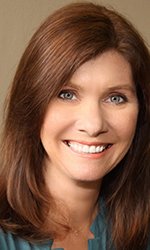
Murphy, senior lecturer in journalism, on journalists and journalism:
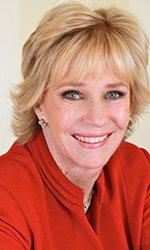
The second thing I want to say is about reporting. I have been working on a book about digital journalism and I have been interviewing journalists all over America. And this is what they have said to me: ‘We can spend six months in the office, looking online and reading the reports and that’s a great base, but if we don’t go out there, if we are not knocking on the doors, if we are not talking to people, we never get the real story.’ I know, Gabe, you were thinking maybe this is the end of legacy journalism. I’m thinking it’s the renewal of the combination of digital and legacy. Because just as the Clinton people didn’t go to the Rust Belt, neither did the journalists and that is where we have to focus our attention. I’m talking about all the students. It’s great to do your work in here, but you better get out into that community and find out what’s really going on because that’s what we weren’t doing.”
Taplin, clinical professor of communication, on the use of propaganda in the campaign:

Please view the photo gallery below:
Annenberg Media also covered the election on Tuesday night:
